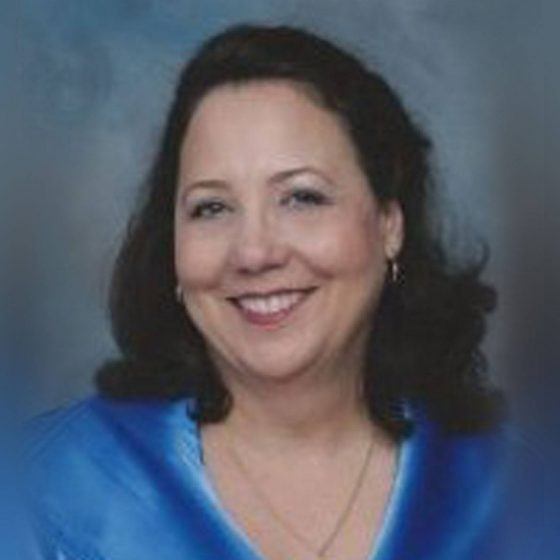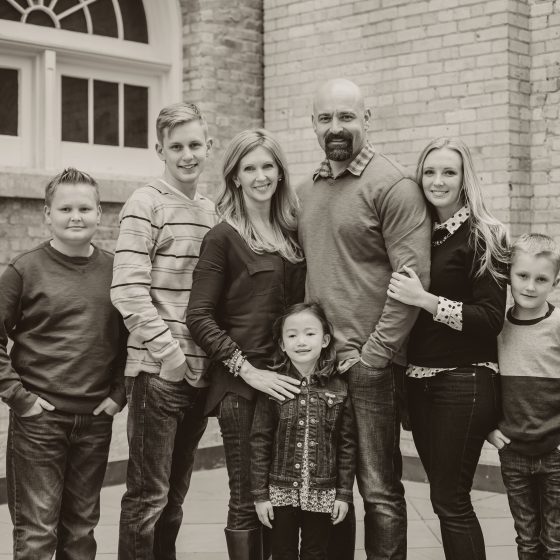Medicare Fraud Under Attack
Copyright 2007 American City Business Journals, Inc.444
All Rights Reserved
South Florida Business Journal
The paperwork shows Dr. Luis Francisco Guerrero was unbelievably busy. In six months, he was listed as the active physician on 2,923 Medicare claims, an average of 16 every day, seven days a week.
The reality, federal prosecutors say, is that Guerrero never saw the patients listed in the claims and wasn’t even aware of them.
Like other doctors and patients, his identification was stolen and used to bill Medicare.
South Florida is called the epicenter of Medicare fraud, but federal prosecutors have launched new efforts to combat the problem.
The challenge, amid the widespread ID thefts, is finding the actual perpetrators and stopping them from opening new clinics.
Florida has more Medicare and Medicaid fraud than anywhere else because of the high proportion of recipients and the government’s inability to keep up with the fluid “bill mills” that keep popping up, said Patrick Burns, spokesman for Washington, D.C.-based Taxpayers Against Fraud.
”These fly-by-night clinics may end up making millions of dollars for themselves,” he said. “They just need to print out a letterhead and get a physician’s [government billing] number and starting billing. By the time Medicare figures out you’re billing for services no one showed up for, you’ve already got your money and wired it to a bank in the Cayman Islands.”
The cost to taxpayers reaches into the hundreds of millions of dollars, experts say.
Billing fraud adds at least 5 percent to the cost of health care in Miami-Dade County, said George Foyo, South Florida market president for Blue Cross Blue Shield of Florida. The cost of combating and absorbing fraud-related losses inflates the price of health insurance for everyone.
R. Alexander Acosta, U.S. attorney for the Southern District of Florida, has responded by stepping up the pursuit of Medicare fraudsters. His office has fast-tracked some investigations and recently recovered $10.5 million in proceeds from false claims from clinics’ bank accounts and filed lawsuits in February seeking to recoup an additional $30 million from 23 clinics and durable medical equipment companies.
Ex-police officer frustrated
The experiences of Tamarac resident Jack Jacoby, a retired police officer, show how difficult it is to stop the government from handing out checks.
Jacoby said he has never met Dr. Jose Zayas, who was listed as the physician on Medicare claims for more than $9,000 worth of medical tests. He said he has never been to Prudential Health Care Center in Hialeah, which is licensed as a massage provider, or received a series of breathing and nerve tests there.
He complained to the government soon after getting the first bill, but that didn’t stop it from paying the clinic in February 2006 and then again in May and August. He called the number listed for Prudential Health Care, but the number was disconnected.
Zayas said he couldn’t have treated Jacoby because he doesn’t remember the patient and had resigned from Prudential in February 2006.
The doctor said he didn’t have contact information for the owner of the clinic. A Business Journal search for the clinic owner turned up a real estate transaction for the man’s former address, but no working phone number.
As in many cases of questionable bills, it is difficult to determine who was involved.
Although Jacoby doesn’t have to pay the charges, he is angry someone is billing the government using his personal information – and it appears nothing is being done to stop it. He hired an attorney to represent him in a potential whistle-blower lawsuit.
”Here I am, trying to report that someone is defrauding the government – and the government isn’t helping me,” Jacoby said.
There aren’t any comprehensive studies on how much Medicare billing fraud takes place, but Burns of the taxpayers’ group believes it could comprise up to 10 percent of all Medicare bills in Florida. As lawmakers grapple over how the rapidly growing Medicare budget can support the retiring baby-boomer generation and announce cuts to physician payments, this fraud wastes dollars that are badly needed to serve real beneficiaries.
“The reason Medicare fraud is so prevalent is because it’s too easy to bilk the system”, said Marcella Auerbach, a partner with the Nolan Law Firm in Fort Lauderdale, who represents whistle-blowers in government fraud cases. “The Centers for Medicare and Medicaid Services (CMS) needs to develop a better system to monitor the billing activities of clinics and spot problematic billing patterns”, she said. “There also needs to be more agents pursuing these claims and making sure that licensed clinics are really operating”, Auerbach said.
The evidence of fraud isn’t hard to find. A 2005 Government Accountability Office (GAO) study found that routinely identifying suppliers of custom-fabricated orthotics and prosthetics who were billing Medicare without the required Florida license could have saved more than $56.3 million in improper payments. Medicare didn’t catch this because licenses weren’t checked, the GAO said.
In addition, the GAO found 62 suppliers in Florida who should not have billed Medicare for oxygen services (at least $1,000 each, for a total of
$3.3 million in improper payments).
Since that report, the federal government has shown signs of becoming more aggressive.
The $10.5 million recently recovered by the U.S. attorney came from bank accounts registered in the names of 34 people who weren’t aware the accounts even existed, Acosta said. Investigators found no links between the fraudulent bills and the account holders, who voluntarily turned over the money.
In the cases where his office sued to recover the funds, investigators could not locate the individuals registered on the accounts holding the ill-gotten funds, Acosta said.
In the largest such lawsuit, Miami Rehabilitation Center is accused of submitting to Medicare 3,757 claims totaling $7.4 million during a six-months period in 2006. The lawsuit said most of them are fabricated.
Medicare paid
$1.67 million of the claims.
The huge amount of claims for the two physicians listed, including Guerrero, prompted Medicare’s claims processing service to refer the clinic to his office, Acosta said.
The lawsuit said Guerrero and the other doctor aren’t affiliated with Miami Rehab, never rendered those services and weren’t aware of those claims.
The clinic had five corporate officers listed with the Division of Corporations during a four-year span, but none of them were included in the lawsuit.
Acosta’s office has filed civil, not criminal, actions because it has not determined the individuals responsible for the fraud, Acosta said.
”Seizing $40 million sends a message that this isn’t going to be free money,”
he said. “We’re going to do as much as we can, civilly and criminally, and not wait on criminal action before taking civil action.”
Acosta’s office brought criminal charges in five major Medicare fraud cases in 2006, each with fraudulent billings ranging from $2 million to
The Office of the Inspector General (OIG) for the U.S. Department of Health and Human Services (HHS) recovered more than $2 billion nationwide in fraud related to Medicare and Medicaid in 2005, said Judy Holtz, public affairs officer for the OIG.
Her office tries to focus on big-dollar-amount cases, but the average investigation takes three to five years, she said. That’s because of the complexity of the paper trails and the nearly 2,000 cases spread among 400 agents that investigate fraud in other HHS programs, as well, she said.
”Our agents carry a heavy caseload. Sometimes, it feels never-ending,”
Holtz said. “We have increased the number of agents but the U.S. attorney general offices and the courts need to keep pace with prosecutions.”
Unless a clinic’s billing number has been terminated or suspended – which Holtz said is rare – it can continue to bill Medicare and get reimbursed during an investigation.
Billed by unregistered clinic
Like Jacoby’s experience, the “pay first and ask questions later”
strategy of Medicare has frustrated Tim, a 39-year-old Broward County resident whose full name is being withheld because he has HIV. For three straight months, he received bills for services he said he didn’t receive at a place he’s never
been: Rainbow Medical Supply in Miramar.
The company has not been licensed by the Florida Department of Health (DOH), according to its Web site.
There’s no referencing doctor on Tim’s bill, as would be expected for a durable medical equipment order. The phone number is disconnected. There is no sign of an operating clinic or medical supply company at its State Road 7 address. Those listed as corporate officers in state records could not be located.
Tim said the company billed Medicare and Medicaid $3,103 for a wound therapy pump, 45 wound therapy dressing sets and 10 disposable canisters for the pump.
”I haven’t had any wound,” Tim said. “This company got access to my Medicare and Medicaid number. This is very, very disturbing.”
There are many ways beneficiaries’ numbers are used without their permission, said Alicia Valle, spokeswoman for the U.S. attorney for the Southern District of Florida.
Employees working in doctors’ offices, hospitals or other entities with access have sold lists of patient billing information. For instance, in September, Cleveland Clinic Florida front desk coordinator Isis Machado was charged with using the computer system to steal medical records of 1,100 patients from its Naples hospital and selling them to her cousin Fernando Ferrer Jr., who is charged with charging Medicare with $2.8 million in false bills with those numbers. Machado pleaded guilty and Ferrer was convicted on all counts.
In other instances, recruiters are paid to bus patients – usually poor and elderly – far from their homes for unnecessary tests and a kickback payment, Valle said. Once clinics have their numbers, they can keep billing without providing any services, she said.
In October, Miami Beach-based Dr. Pedro Cuni was charged in a 22-count federal indictment that alleged more than $1 million in fraudulent Medicare charges involving kickbacks to patients for durable medical equipment billed out of R.C. Medical Center in Hialeah.
Cuni agreed to a plea deal and signed a statement accepting responsibility for the fraud.
Starting last year, Acosta partnered with CMS and state authorities to go after small Medicare fraud cases. While the multimillion-dollar cases take years to investigate, cases with a few hundred thousand dollars in fraud can be brought to prosecution in a few months, Valle said.
Acosta’s office brought charges against 21 defendants in nine of these “fast track” cases in 2006.
”We’re trying to do cases that previously would have fallen under the federal radar,” she said. “We want to let them know that if you do it, you will be prosecuted.”
As part of the effort, DOH officials have started site inspections at newly registered clinics, but say they don’t have the resources to follow up and check on existing clinics. Often, a fraudulent clinic will operate like normal until the initial inspection, and then close down to start improper billing, a CMS official said.
If federal authorities are looking for a starting point to combat Medicare fraud, they should examine how Florida has taken on Medicaid fraud.
Florida’s Agency for Health Care Administration has developed a computer program that tracks the distance between Medicaid providers and their patients, and the amount of addictive drugs and billing items most used in a fraudulent provider’s bill.
Finding a doctor who keeps prescribing to patients 300 miles away is a good way to target investigations, said Spencer Levine, who formerly headed Medicaid fraud control for Florida and was recently hired as senior VP for compliance and ethics for the North Broward Hospital District. This strategy helped the state collect about $220 million in improper Medicaid payments in the last four years, compared with $40 million in the prior four years.
Levine also boosted the number of Medicaid fraud investigators to speed up investigations.
”Four years ago, hundreds of providers under investigation were still drawing state money,” he said. “That wasn’t happening when I left.”
When there’s a rapid increase in claims, Florida Medicaid officials are usually on the scene in a week, but it takes Medicare months to respond, if they do at all, said Raul Lopez, president of the Florida Association of Medical Equipment Services. The easiest way to stop fraud is to have a computer program look for new providers with unusually high claims, he said.
Lopez has experienced both sides of the issue. His 70-year-old aunt got notice Medicare was billed on her behalf by two Hialeah clinics for an in-home hospital bed and air mattress that she didn’t need or receive.
Medicare paid one provider three times before suspending the clinic – and then the other clinic started billing her.
The association with fraudulent durable medical equipment providers and Hialeah is so strong that Lopez’ company, Bayshore Dura Medical, lists itself as being in Miami Lakes, although it has a Hialeah ZIP code.
”You have people running around, destroying the reputation of a business that is a good business if run correctly,” Lopez said.
Kathleen Hawkins
- Dignity Health
- $37 million
Kathleen Hawkins, RN MSN, had been employed by Defendant, Catholic Healthcare West (CHW) for approximately 6 years when she decided she had had enough of trying to change the hospital system from within.
CHW, a California not-for-profit corporation that operated hospitals in California, Arizona, and Nevada, was at the time the eighth largest hospital system in the nation and the largest not-for-profit hospital provider in California.
CLICK FOR MORE
Joe Strom
- Johnson & Johnson
- $184 Million
Joe Strom contacted us in 2005. We were very grateful that he did. We immediately formed an all-star legal team and a process to stop a very harmful pharmaceutical marketing strategy. It was this process we set into motion that ultimately returned hundreds of millions of dollars to the U.S. Treasury, and a portion of that, very well-deserved, into Joe’s bank account.
Joe told us a very troubling story about the off-label promotion of a pharmaceutical drug for patients who already suffered from chronic heart failure.
CLICK FOR MORE
Bruce A. Moilan Sr.
- $27 Million
Bruce Moilan was a seasoned hospital systems expert by the time he contacted our Firm. At the time he decided to file his qui tam lawsuit, he was employed by South Texas Health System as a System Director for Materials Management. In this position, he oversaw $24 million in annual purchases of supplies and equipment and helped determine budget, reduction and cost analysis throughout the contract bidding and negotiations process. His job was to insure proper implementation for purchasing, receiving and management of inventory, for McAllen Hospitals, L.P.
CLICK FOR MORE


